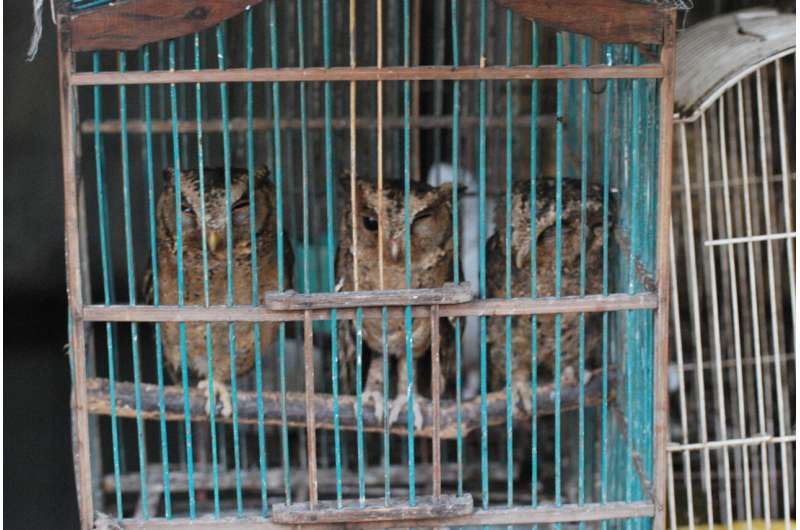COVID-19 awareness may reduce demand for wildlife products in Asia

People in certain parts of Asia with a higher self-reported awareness of the COVID-19 pandemic may be up to 24% less likely to consume wildlife products in the future, according to a survey of 5,000 individuals published in Nature Ecology & Evolution. These findings suggest that communicating disease risks—especially those associated with wildlife consumption—could have dual benefits for infectious disease mitigation and biodiversity conservation.
Wildlife and wildlife products are consumed for traditional or cultural purposes around the world, which in some cases can threaten biodiversity or result in the spillover of pathogens from wildlife to humans. Therefore, the conservation community is interested in reducing demand for such products.
Robin Naidoo and colleagues conducted a survey in the early stages of the COVID-19 pandemic in March 2020. The survey included 5,000 individuals (mean age was 39 years old; 53% were male) from Hong Kong, Japan, Myanmar, Thailand and Vietnam. Participants were asked whether they or anyone they knew had consumed wildlife in the previous year, whether the pandemic had changed their consumption patterns, and how likely they would be to purchase wildlife from wet markets in the future. The authors tested whether responses to these questions were affected by the participants' self-reported levels of awareness and concern about COVID-19, along other sociodemographic variables. Participants in the category with the highest degree of COVID-19 awareness were 11–24% less likely, depending on the country, to buy wildlife products. Exceptions to this were in Vietnam (where these individuals were more likely to have increased consumption) and Myanmar (where they stated an increased likelihood of future purchases).
The authors note that reducing demand for wildlife products is complex, as there are a variety of motivations and needs to consume these products among and within nations. The results of this paper suggest that public education about the disease-related risks of wildlife consumption could be beneficial for both conservation and public health.
More information: Robin Naidoo et al, Socio-demographic correlates of wildlife consumption during early stages of the COVID-19 pandemic, Nature Ecology & Evolution (2021). DOI: 10.1038/s41559-021-01546-5
Journal information: Nature Ecology & Evolution
Provided by Nature Publishing Group




















